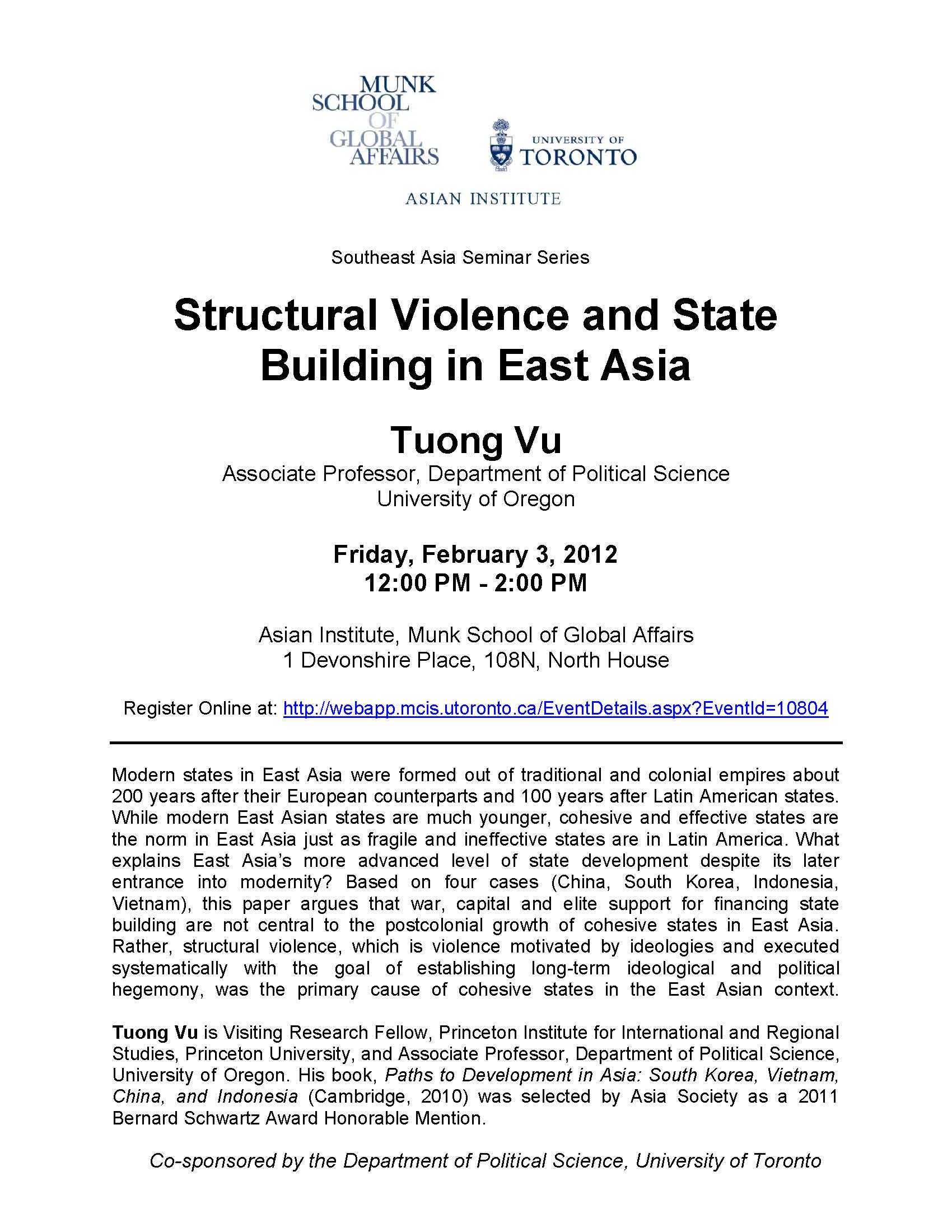Structural Violence and State Building in East Asia
January 26, 2012
Structural Violence and State Building in East Asia
Southeast Asia Seminar Series
Tuong Vu
Associate Professor, Department of Political Science
University of Oregon
Friday, February 3, 2012
12:00 PM – 2:00 PM
Asian Institute, Munk School of Global Affairs
1 Devonshire Place, 108N, North House
Register Online at: http://webapp.mcis.utoronto.ca/EventDetails.aspx?EventId=10804
Modern states in East Asia were formed out of traditional and colonial empires about 200 years after their European counterparts and 100 years after Latin American states. While modern East Asian states are much younger, cohesive and effective states are the norm in East Asia just as fragile and ineffective states are in Latin America. What explains East Asia’s more advanced level of state development despite its later entrance into modernity? Based on four cases (China, South Korea, Indonesia, Vietnam), this paper argues that war, capital and elite support for financing state building are not central to the postcolonial growth of cohesive states in East Asia. Rather, structural violence, which is violence motivated by ideologies and executed systematically with the goal of establishing long-term ideological and political hegemony, was the primary cause of cohesive states in the East Asian context.
Tuong Vu is Visiting Research Fellow, Princeton Institute for International and Regional Studies, Princeton University, and Associate Professor, Department of Political Science, University of Oregon. His book, Paths to Development in Asia: South Korea, Vietnam, China, and Indonesia (Cambridge, 2010) was selected by Asia Society as a 2011 Bernard Schwartz Award Honorable Mention.
Co-sponsored by the Department of Political Science, University of Toronto
